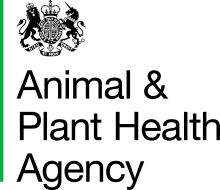PATH-SAFE newsletter, September 2023
PATH-SAFE is a £19.2 million Shared Outcomes Fund (SOF) research programme, this newsletter outlines key updates and spotlight moments from the team.
Welcome to the Pathogen Surveillance in Agriculture, Food and the Environment (PATH-SAFE) programme newsletter.
PATH-SAFE is a £19.2 million Shared Outcomes Fund (SOF) research programme which aims to pilot a national surveillance programme for foodborne diseases and antimicrobial resistance.
News and key updates
- Evaluation: The evaluation framework report has been completed and published. The report sets out the evaluation framework that will be used to guide the evaluation of the PATH-SAFE programme. The interim process evaluation report is due to be delivered to the FSA in September, and work will begin on the impact evaluation from September onwards. The completed final evaluation report is expected in Summer 2024.
- Webinar series: The PATH-SAFE webinar series has seen great success since it started and will restart in September, following a summer break. The September session will focus on WS2 Dairy Cattle and Animal Feed AMR Surveillance Pilots (more details included in the Spotlight section below). October will see a talk from RAND about the PATH-SAFE programme evaluation, and November will cover the APHA led Genomics for Animal and Plant Diseases Centre (GAP-DC) programme. Any programme stakeholders interested in giving a talk should contact the programme team. If you are not on the mailing list for the webinars but are keen to hear more, please let us know.
- Defra project (FA0194) “Harmonisation and Standardisation in the Field of Next Generation Sequencing (NGS) Analysis for Food Authenticity Testing”: Defra have recently commissioned a project with LGC focused on the application of Next Generation Sequencing (NGS) technologies for food authenticity testing. NGS represents a powerful and emerging technology for food authenticity testing, but variability observed in the generation and interpretation of NGS results highlights the need for the development of standards and harmonisation of NGS approaches. The project aims to support standardisation within the sector, explore the scope and limitations of NGS and, establish guidance and recommendations for minimum performance criteria associated with NGS. Sharing complimentary activities to elements in workstreams in the PATH-SAFE programme, the project leads at LGC are looking for other experts to be part of a stakeholder engagement exercise, and to capitalise upon shared experiences and expertise between PATH-SAFE and the Defra project FA0194. For more information or to become involved in the stakeholder engagement exercise associated with the Defra FA0194 NGS project, please contact Gavin Nixon and Malcolm Burns.
Spotlight: Focusing on Antimicrobial Resistance (AMR) in Imported Animal Feed Ingredients and finished feed (Workstream 2b.5)
Animal feed ingredients are traded globally on a large scale and represent a viable means of introduction of novel pathogens and antimicrobial resistance (AMR) genes into the UK. Recent disruptions to global supply chains have resulted in an increase in feed ingredients sourced from atypical suppliers. AMR in individual feed ingredients has been identified as a data gap by European Food Safety Authority.
In the UK, imported feed ingredients do not undergo routine AMR testing at the border, nor on arrival at feed mills before processing into finished feed. Understanding the AMR load in imported ingredients and finished feed, to make risk-based decisions about surveillance and control measures, is essential.
This is where the PATH-SAFE workstream 2b.5 project comes in. Led by VMD and APHA, this project is sampling both imported and domestic raw feed ingredients, as well as finished feed, to identify raw ingredients and countries of origin that potentially present a risk of introducing AMR into UK agri-food chains. The pathogens being investigated include Streptococci, E. coli, Staphylococcus aureus, Enterococci and Klebsiella. Resistance to a panel of AMR classes will be investigated to help detect the presence of important types of AMR, which are a concern for both human and animal health, such as ESBL E. coli, carbapenemase-producing E. coli, colistin-resistant E. coli and linezolid-/vancomycin- resistant enterococci. Whole genome sequencing (WGS) will also be performed on selected isolates to identify the specific genes that are present in the bacteria that encode for the identified AMR.
There have been many aspects to consider on the sample collection front, including the spread of sampling across different ingredients and finished products, based on the volume passing through the feed mill. Collaboration with the Agricultural Industries Confederation (AIC) and the staff at the feed mill have been central to this, with estimates they provided being used by the epidemiology team at APHA to generate a weekly sampling planner to guide the collection of representative samples. However, samples of raw ingredients are collected as they are delivered to the feed mill, and with the feed mill running 24 hours a day, deliveries are not always regular or predictable. Staff at the feed mill were therefore provided sample collection training by APHA, to ensure samples could be taken at any time of the day.
On the APHA side, two different laboratories are supporting this project; sample collection, provision of sampling kits and laboratory testing is led by staff at the APHA laboratory in Newcastle Upon Tyne. While the laboratory team at APHA Weybridge is largely responsible for Enterococci isolate characterisation and whole genome sequencing.
Now in month 9, of a 10-month sampling period, over 200 raw feed ingredients and 200 finished feed product samples have been collected. Sampling will conclude in October and the team at APHA are already hard at work on the bacteriology testing of the samples collected to date. Analysis of the results will be undertaken early next year, with final results being published in due course, following the projects conclusion in March 2024.
If you would like to hear more about this project, and the collaboration with AIC, please join the next PATH-SAFE webinar (AMR Surveillance Pilots: Dairy Cattle and Animal Feed Surveys) on Monday 25th September 14:00 – 15:00 (further details, including the link to join can be found on the PATH-SAFE webpage.)
Workstream (WS) updates
Great progress continues to be made across the programme. Below are some brief updates but for more detail on each workstream please see our PATH-SAFE website.
WS1 National foodborne disease genomic data platform
WS1a Update
The delivery team continued to gather information on system reporting requirements via the end user group and four consortium advisory groups (technical, AMR, data standards and international). System ‘personas’ are also currently being identified and developed and the system specification is being advanced alongside this elucidation of user requirements and best practice. The team delivered an interim progress presentation to the programme team in August. An initial system demonstration is planned for a wider programme audience for September.
WS1b Update
Sampling, sequencing and analysis continues as planned. Key highlights include:
- all isolates from the animal hosts work package have been sequenced and metadata obtained. The remaining wastewater E. coli isolates have been submitted for whole genome sequencing with data expected to be returned by the end of the month.
- sampling for the food work and shellfish work packages continues to go well and is expected to complete by the end of August.
- data and bioinformatic analysis continue, with improvements have been made to the machine learning and feature extraction pipeline.
WS2 New surveillance approaches
WS2a Update
The Taw-Torridge 3-month summer sampling period has been progressing well and drew to a close in August. The Ribble Rivers Trust report is going through final drafting stages and will provide extremely useful data against which to compare the Taw-Torridge additional sampling model. The wastewater pilots have made substantial progress; sequencing underway for the Norovirus in UKHSA COVID-19 archived wastewater samples project and sequencing library preparation to begin soon for the Salmonella in Scottish wastewater project. Wastewater sampling and analysis have continued at the North Wales catchment pilot site, with a further 182 influent and effluent samples collected, sample analysis ongoing and analysis of sequence data for AMR has started.
WS2b Update
On the raw meat E. coli isolates project, all isolates have now been run through pipelines for AMR, virulence, and biocides/metal resistance. Sample collection continues to progress as planned for the sheep survey, bulk milk project and animal feed project (raw ingredients and finished feed) with bacteriology results continuing to follow expected trends. Cattle survey sample collection began in June and is progressing well. Stakeholder engagement continues on the raw pet food scoping project.
WS2c Update
Ethics approval granted for care home related work (wastewater sampling for FBD and AMR, modelling of spread on surfaces and qualitative views and experiences aspects). Protocol and methodology development undertaken to date will now be applied to the care home centred work, alongside continued surveillance at a commercial site which will act as a control for the care home surveillance.
WS2d Update
DNA extraction from the human disease isolates (from repositories in England and Wales) is complete, with whole genome sequencing of these isolates (led by the Quadram Institute) currently in progress. There will likely be scope to add further value to this work with the addition of more sample sets. The agri-food isolates have been assembled and DNA extractions are 70% complete. Whole genome sequencing of these isolates is also underway. Data are being quality checked and undergoing basic analysis as they come in, with data and results uploaded to Pub MLST as they become available.
WS2e Update
Project Complete 31/03/2023 – during February and March 2023 AFBI successfully processed 100 historical salmonella isolates (culture, extraction and sequencing), and uploaded the sequences to Enterobase. PATH-SAFE has been noted in comment field on uploaded sequences in Enterobase to allow identification.
WS3 Rapid, in field diagnostic technologies
WS3a Update
Following PATH-SAFE Science Advisory Group consultation, and development of an assessment matrix, 2 scenarios and technologies have now been selected to transition to the second stage of the project for further development and in-field piloting. This has been reported via the provision of deliverable 5: Short report of technologies selected for pilot study in work package 3, with rationale for selection. Planning underway for validation and in-field testing activities, which is due to begin shortly.
WS3b Update
Project Complete 31/03/2023 - 20/30 Labs completed the proof of concept and optimisation work on utilising LAMP on 7 target pathogen - Salmonella spp, Listeria monocytogenes, Norovirus, adenovirus, astrovirus, rotavirus and sapovirus. The final report is undergoing review and will be made available in due course.
WS4 Environment AMR surveillance system pilot
WS4 Update
One R&D project which experienced delays in getting started due to issues with procurement remains in progress. This project is going through procurement at present and is expected to complete by the end of the year. Otherwise, Workstream 4 is considered complete. Final reports are in preparation and workstream closure is in progress.
Meet the team
Each quarter we will spotlight people working across the programme. In this issue we are focussing on colleagues from VMD and APHA who are leading on the pilot study under Workstream (WS) 2b.5. You can read all about WS2b.5 in the spotlight section in this newsletter.
Tamsin Dewé, Head of AMR Surveillance and Evidence, Veterinary Medicines Directorate (VMD)

I oversee the UK-wide surveillance programmes for AMR in animals, as well as the VMD’s portfolio of AMR research. I used to be an equine/large animal vet before moving into infectious disease control and epidemiology. I am currently completing my PhD on the evolutionary epidemiology of AMR at Imperial College, part-time.
I am particularly motivated by understanding and managing AMR as a One Health problem. To do this, we need to improve our knowledge of the prevalence, transmission and evolution of AMR within and across different systems. It’s exciting to be working with colleagues with a vast range of expertise, within the PATH-SAFE programme, to pilot new approaches to understanding the AMR landscape in this country.
Anju Kirby, AMR Surveillance Development Co-ordinator, VMD

I have studied AMR for multiple years, both through my MSc at Royal Holloway University of London, and also as an active postgraduate researcher in the field. I currently work in the AMR surveillance team at the Veterinary Medicines Directorate (VMD). My main interests are to address technical and governance barriers to data-sharing, and to utilise technological and scientific developments to monitor AMR, so we can better tackle AMR as a One Health and global issue. Alongside colleagues, I have developed and manage various AMR pilot projects within WS2b of the PATH-SAFE. These exciting projects involve extensive collaboration both with industry, as well as across government departments and aim to fill important evidence gaps to inform AMR surveillance.
Catherine Fearnley, Veterinary Microbiologist, APHA

Catherine Fearnley is a veterinary microbiologist with 30 years expertise in the detection of Campylobacter and E. coli in foods and animal caecal samples using phenotypic and molecular methods including Maldi-ToF. She has a honours degree from Salford University and a PhD from the University of Birmingham where she was studying differences in virulence of Campylobacter poultry strains.
Cath has worked for many years in the Bacteriology Department at the Animal and Plant Health Agency (APHA) and in recent years she has been involved in delivering work for the FSA including the antimicrobial resistance (AMR) surveys of E. coli, Campylobacter and Salmonella in retail meat. For the PATH-SAFE project Cath is overseeing the detection of indicator and antimicrobial resistant E. coli from sheep caecal contents and carcase swabs.
APHA Newcastle team

At APHA Newcastle, the team working on the Path-Safe project testing animal feedstuff comprises: Caroline Harris, Richard Gibson, Joseph Oliver, Alex McRae and Andrew Huntley.
All have experience and various levels of knowledge in animal biproducts (ABP) microbiological testing and have used these skills to adapt the testing to fit the requirements for the PATH-SAFE project, which they conduct in addition to routine statutory testing.
Caroline manages the ABP department so has the role of overseeing the testing from submission of samples though to result. Richard conducts the majority of testing, with support from Joseph and Alex. Andrew has a wealth of knowledge of Salmonella testing (Control of Salmonella in Poultry Order) and has used these skills to set up testing and support the team.
The team have all hugely benefitted from increasing their knowledge of microbes they wouldn’t ordinarily deal with and learning about other testing being carried out by colleagues as part of the project.
For further information
For any questions or feedback please contact the team at pathsafe@food.gov.uk.
To sign up to the SERD newsletter which contains PATH-SAFE news and link to our full newsletter please visit Food Standards Agency UK (govdelivery.com).
To keep up to date on PATH-SAFE please visit Pathogen Surveillance in Agriculture, Food and Environment Programme | Food Standards Agency.